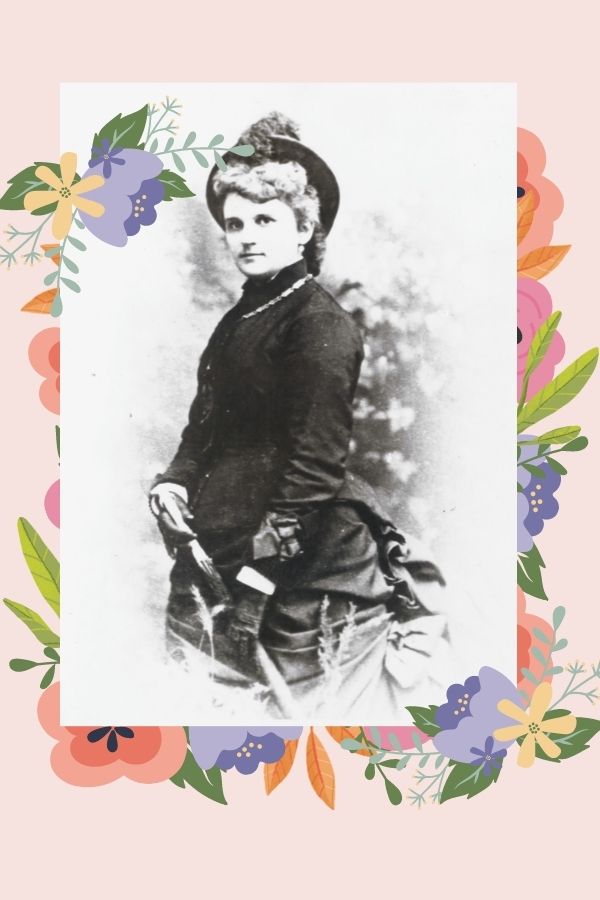- Home
-
Shop All
- Bible Verse & Christian
- Black & White Art Prints
- Book Lover Quotes
- Feminist Quotes
- Book Quote Mugs
- Fine Art Quote Prints
- Inspirational Wall Art
- Jane Austen Quotes Prints
- Jane Eyre & Bronte Art
- Love Poems & Quotes
- Minimalist Art Prints
- Nursery Decor Prints
- Other Options & Custom
- Poetry Quote Art
- Shakespeare Quotes Prints
- Travel Quote Art
- About
- Blog
- Track Order
- Contact Us

Becoming Herself: Kate Chopin writer of "The Awakening"
Kate Chopin is one of America’s finest authors, writer of classics such as The Awakening, writing at a time when being a writer was still not a well-respected profession for women. So who was Kate Chopin, and how did she come to write the novels and stories we consider classics of literature today?
She was born Katherine O’Flaherty in St Louis, Missouri. Her father was an Irish emigré and her mother was of French descent.
She was raised by three generations of widows - her mother, grandmother and great-grandmother in the same household. Her father died when she was very young and her mother never remarried. She was tutored for several years her great-grandmother, who taught her French, music and history. She was an avid reader from a young age of fairy tales, novels and poetry. She then went on to Sacred Heart Academy in St Louis, where her early mentor was a teacher at Sacred Heart called Mary O’Meara. She was a gifted writer herself and encouraged Chopin’s writing.

The Chopin House in Cloutierville, photographed by Jack Boucher.
Much of her writing was inspired by the French creole culture and her life in Cloutierville, Louisiana. She and her family moved there following the demise of her husband’s business in New Orleans. There they managed several plantations and ran a general store. They lived there for three years until her husband’s death.
Following his death, she struggled to keep their business afloat, having been left with a huge amount of debt. Two years later, she moved back to St Louis with her children to live with her mother, who passed away the next year.
It was her doctor and family friend who encouraged her to start writing, as a way to alleviate her depression and earn money. She started writing stories for local St Louis periodicals and literary magazines.
In 1899, her most famous novel, The Awakening, was published. It was widely criticised for the morally dubious behaviour of her female protagonist, which many found offensive. Chopin was disheartened by the reception but continued to write up to her early death in 1904 at the age of fifty-four. However she did not write another novel, but stuck to short and autobiographical fiction.
Her novel sunk into obscurity and was out-of-print until the 1970s, when it was rediscovered as an early feminist text. It was republished and enjoyed a revival of interest and acclaim. In the burgeoning 1970s feminist movement, the novel was appreciated by a new generation of readers. The Awakening appears on many college syllabuses along with other rediscovered female authors like Emily Dickinson and Susan Warner.
Chopin’s writing focused women who struggle within the rigid roles set out for them, and are attempting to break free and carve out their own paths. She took on unpopular subjects and themes around womanhood, boldly giving her characters a strong sense of self and identity which would have seemed radical and transgressive in her time. With stories rooted in the South, they also addressed slavery and miscegenation. Her stories gave these themes depth and complexity that other writers didn’t dare to address so openly.
She did not identify with the feminist or suffragette movements of her time, although her writings have been re-classified since as feminist texts. Certainly nearly all her stories centre around the lives of women, and often women who are resistant to the patriarchy or who act in other transgressive ways. Many such themes in her stories are revealed in subtle ways, perhaps as to maintain her readership.
Chopin at times risked unpopularity in order to write the stories she wanted. As her skill as a writer grew, she was able to weave into her stories complex and challenging themes that modern readers can appreciate maybe better than her contemporary readers did - that of independently minded women reaching and striving for something beyond the confines of Victorian womanhood.
Here are some of my favourite quotes from Kate Chopin…

“But whatever came, she had resolved never again to belong to another than herself.”

The voice of the sea speaks to the soul.”
“The artist must possess the courageous soul that dares and defies”
― Kate Chopin, The Awakening and Selected Stories
Quick links
Search
FAQ
Privacy policy
Shipping Policies
Terms of service
OUR MISSION
At BookQuoteDecor.com, our passion is to redefine spaces through the magic of words. We're dedicated to selecting and crafting premium, literature-inspired decorations that do more than just beautify your environment—they honor the everlasting elegance of written language. Our goal is to weave the wonder of books into the fabric of your everyday life, with each meticulously chosen quote.

Leave a comment: